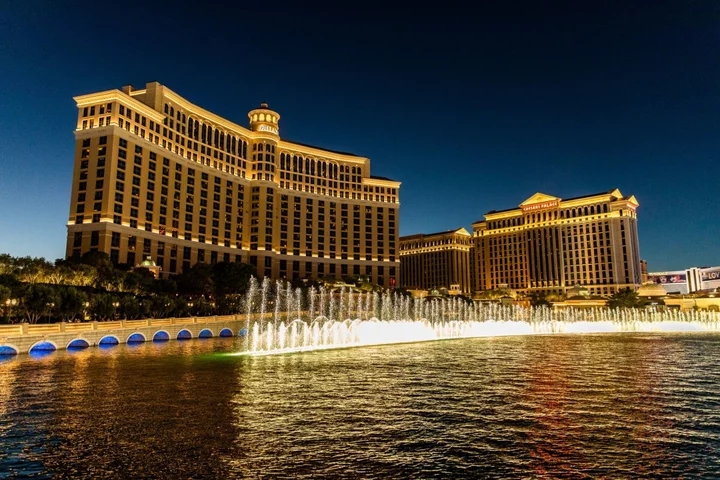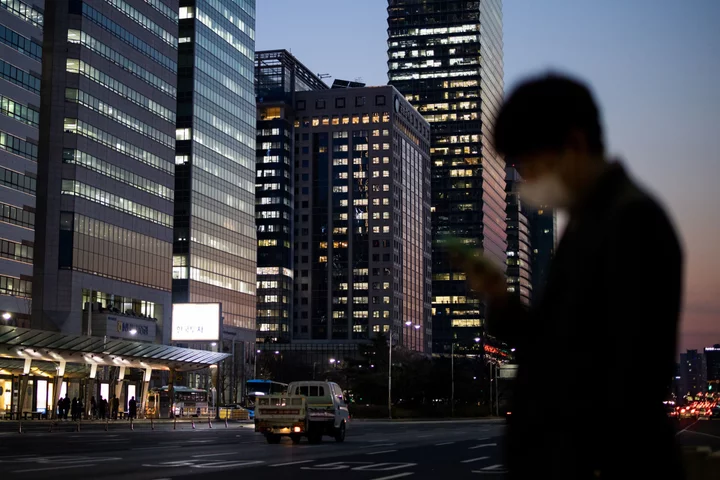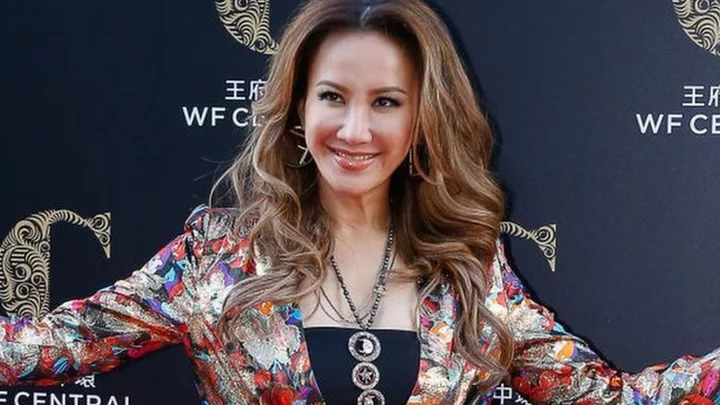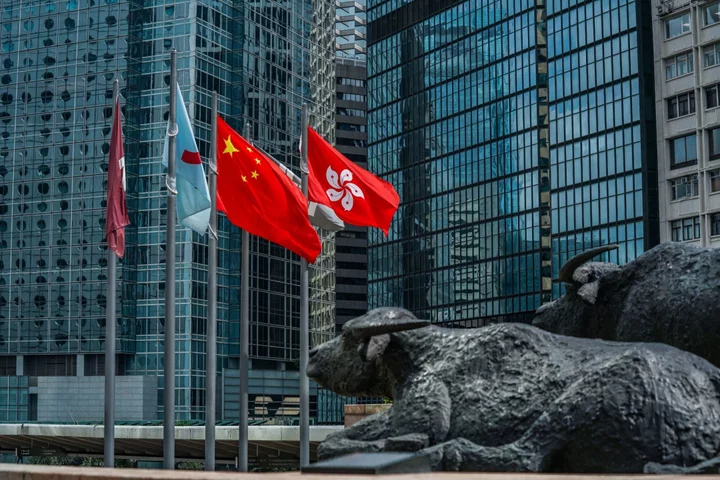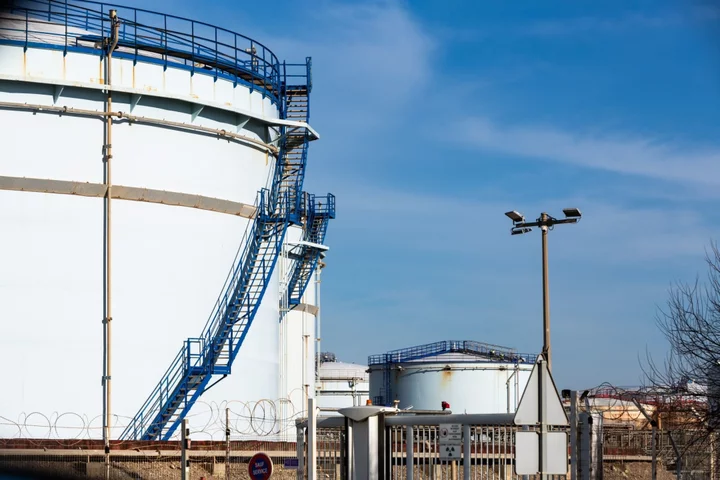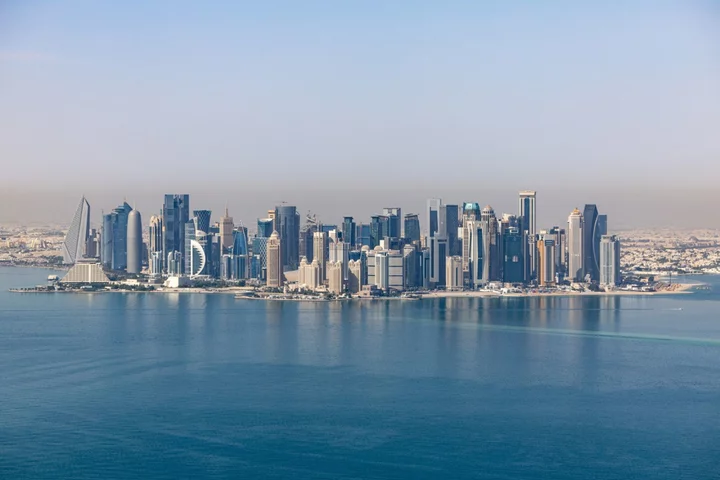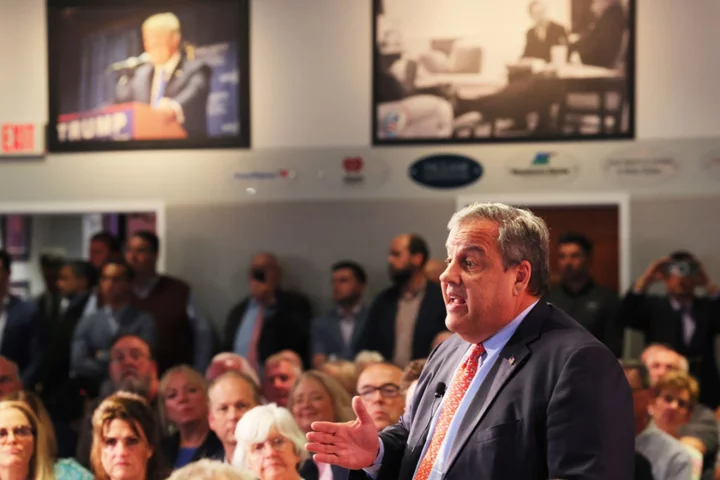Donald Trump pleaded not guilty to charges that he conspired to obstruct the 2020 presidential election and interfere with the voting rights of millions of Americans — a case his legal team said it was prepared to “vigorously” defend.
The former president was arraigned Thursday in the federal courthouse in Washington before US Magistrate Judge Moxila Upadhyaya. He’ll remain free while the case moves forward, but was prohibited from speaking to anyone identified as a witness about the facts of the case except through his lawyers.
During the 30-minute hearing, Trump sat just a few feet from Special Counsel John “Jack” Smith — who has indicted him twice. They didn’t interact. Trump spoke little, as is typical for arraignments, though he made a point of stating his not guilty plea rather than have his lawyer, John Lauro, do it for him.
This is the third criminal case against the former president, and the district attorney in Fulton County, Georgia, is set to announce soon if she’ll pursue a fourth indictment tied to her probe of election interference in the state.
The next hearing in Washington was set for Aug. 28 before US District Judge Tanya Chutkan, who will preside over the case, though Trump won’t be required to appear. At that time, Chutkan intends to set a trial date, Upadhyaya said. The magistrate judge gave prosecutors a week to file a brief proposing a schedule, and Trump’s legal team another week to respond.
Seeking Delay
Lauro said the case will take longer to complete than prosecutors claim, saying it was “somewhat absurd” to expect a typical schedule for a speedy trial. He said he’ll seek a delay in the proceedings given the “magnitude” of the case against Trump, which his team will “vigorously” fight.
“All we would ask your honor is the opportunity to fairly defend our client, but in order to do that, we’re going to need a little time,” Lauro said.
Prosecutor Thomas Windom said the government was prepared to swiftly turn over a “substantial volume” of evidence, but said the Trump prosecution, “just like every other case,” would benefit from “normal order.”
Upadhyaya said that she could “guarantee everybody” there would be a “fair” process and trial.
Trump’s journey to his arraignment was chronicled on live television as a line of dark vehicles left his Bedminster, New Jersey, golf course for his private plane at Newark International Airport. That coverage included his plane landing at Reagan National Airport in Washington and his motorcade entering the nation’s capital. The court building stands within sight of the US Capitol that was attacked by mobs of his followers on Jan. 6, 2021 as Congress was certifying Joe Biden’s victory.
After the hearing, Trump briefly addressed reporters at the Washington airport, calling it a “very sad day for America.”
“This is a persecution of a political opponent. This was never supposed to happen in America,” he said.
Heavy security
Barricades and yellow tape were present around the perimeter of the courthouse, along with several snow plows lined up near the side of the building. Crowds formed outside showing the political divisions Americans have over Trump.
Read More: Trump Indicted on Federal Charges in 2020 Election Probe
Before the hearing, the former president was processed by the US Marshals Service, which took his fingerprints and his personal information. He wasn’t expected to have a mugshot taken because he’s a recognizable person and many photographs already exist, a Marshals Service spokesperson said.
Trump didn’t enter the Washington courtroom from a public hallway. Instead, he arrived and exited from a separate, non-public entrance.
Trump’s case was randomly assigned to Chutkan after a grand jury returned the indictment on Aug. 1. She will preside over the proceedings going forward. She’ll have to navigate Trump’s busy court calendar and the demands of his 2024 presidential campaign.
Trump has derided the criminal cases against him as politically motivated. In a statement Tuesday, his campaign said the Washington indictment involved “fake charges” brought by President Joe Biden’s “weaponized Department of Justice” to interfere with the 2024 election.
Multiple cases
Smith’s office secured a four-count indictment this week that accuses Trump of conspiring to defraud the US by interfering with the counting of votes in 2020, obstructing and conspiring to obstruct Congress’ certification of the election results, and conspiring against the right to vote.
The indictment refers to six alleged co-conspirators who haven’t been charged. In announcing the case, Smith said that the investigation was ongoing and Bloomberg News previously reported that more witnesses were scheduled to appear before the grand jury later this month.
Smith’s office separately has charged Trump in Florida with mishandling state secrets after he left office and conspiring with two of his employees to try to obstruct the government’s efforts to get those classified documents back from his Mar-a-Lago resort. Trump has pleaded not guilty to those charges.
In New York, the former president is facing an indictment on state charges alleging he falsified business records in connection with hush payments to an adult film star before the 2016 election. He’s pleaded not guilty. Trials in the New York and Florida cases are set for March and May, respectively.
In Georgia, Fulton County District Attorney Fani Willis has been pursuing a parallel investigation into efforts by Trump and others to overturn President Joe Biden’s win in the state.
Read More: All the Charges and Possible Prison Time Trump Now Faces
Nothing in Article II of the Constitution, which sets the qualifications for the presidency, bars Trump from running or taking office while he faces the current charges against him, even if he’s in prison — though how to serve from behind bars would pose a novel problem. The 14th Amendment, adopted in the wake of the Civil War, bars anyone who has “engaged in insurrection or rebellion” from holding office. Some advocacy groups say they’re prepared to sue to apply the prohibition to Trump or pressure state governments to disqualify him from the ballot.
The case is US v. Trump, 23-cr-00257, US District Court, District of Columbia (Washington, DC).
--With assistance from Airielle Lowe.
(Updates with comments from Trump, his attorney, the prosecutor and judge.)


